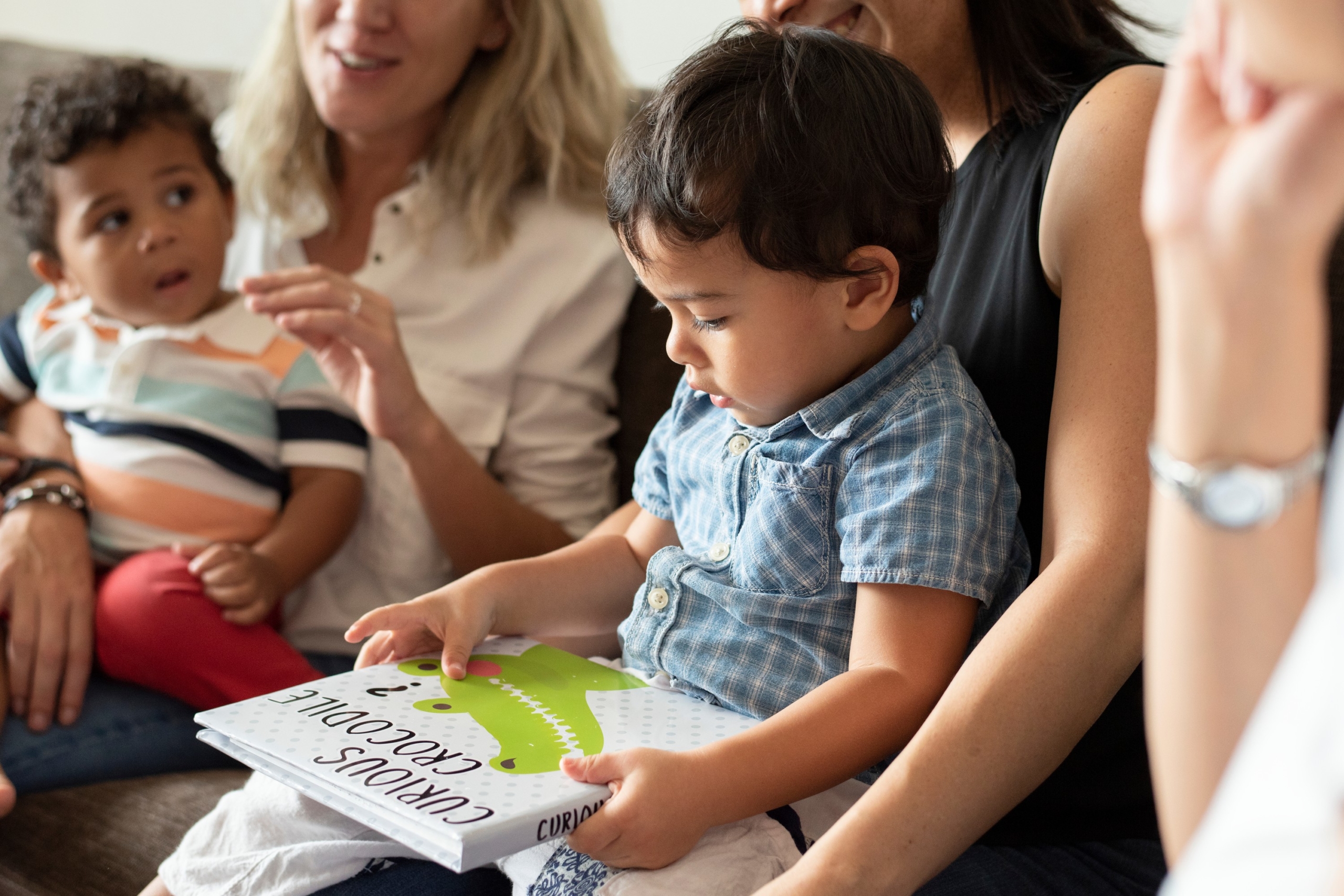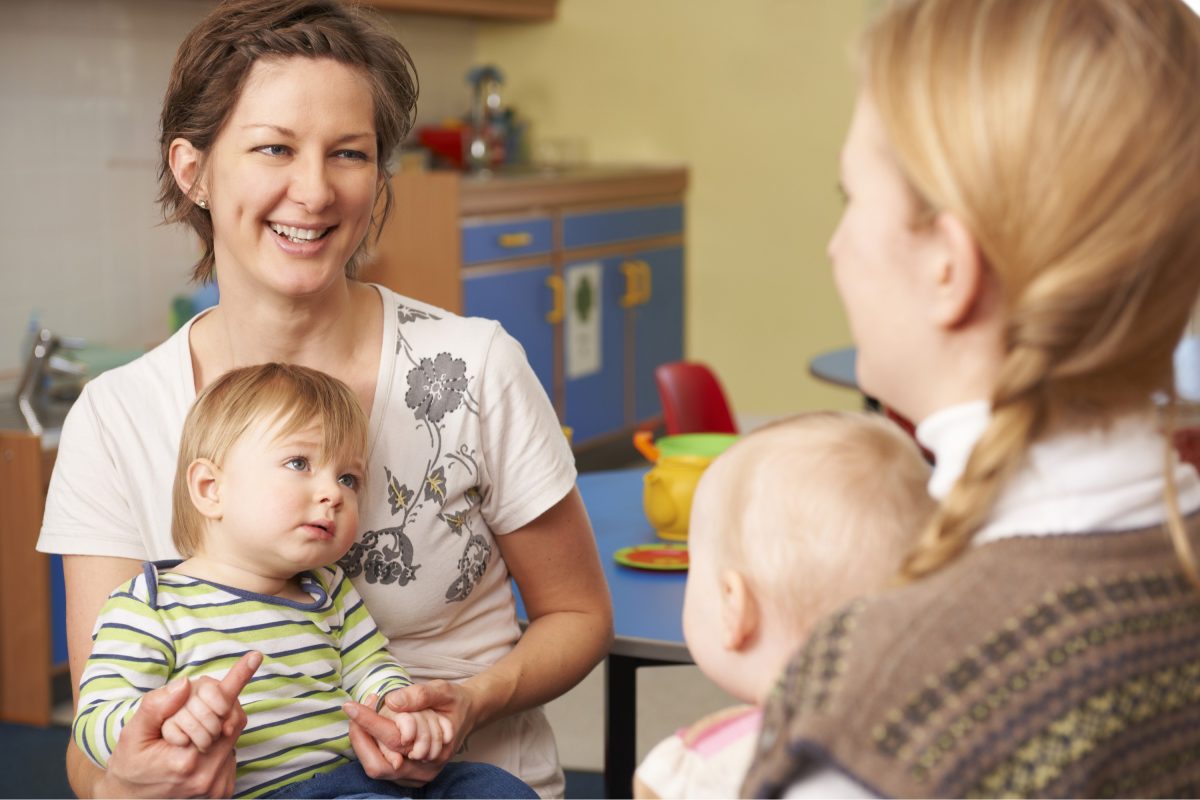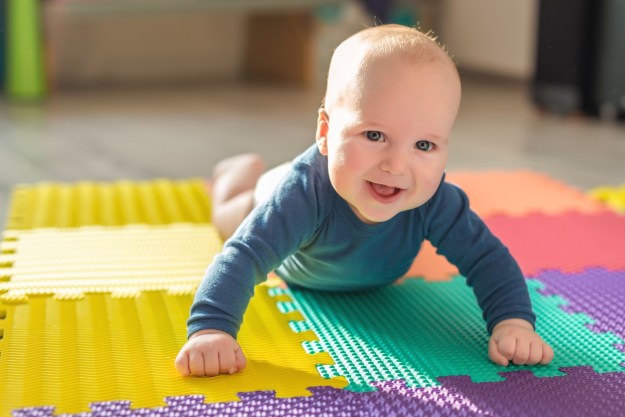Looking to give your toddler a little extra socialization? If you are feeling like your little one could benefit from being around and engaging in play with other toddlers, you may want to consider joining an age-appropriate play group. These tot-friendly collectives help children achieve a well-rounded upbringing — full of learning experiences and relationship building. Parents strive to give their children the best and most fulfilling experiences, and playtime is no exception.
If you aren’t familiar with what a play group is, it can loosely be defined as a collection of children and their parents (or guardians) that meet up once to several times per month for the little ones to play together. These kiddos are usually of similar ages, can consist of boys, girls, or be co-ed. These groups often meet at a central location. Some may even rotate to different spots depending on the time of year — such as a park during warmer weather and move indoors during the winter months.

If you’re looking for something like this for your child, you may be wondering where you might find them, or how you might arrange a kid’s play group in the first place. Asking friends, family, or neighbors is a good place to start. Or you may also consider social media groups geared toward local parents. A parenting app is also a possible connecting medium for play groups around your area. Staying as local as possible is important to keep in mind as well, while seeking out groups to join.
Staying close to home provides parents a two-fold benefit. The first one is saving money. Let’s be honest, no one wants to be driving all over the place for play groups that cost them precious fuel and put miles on their vehicle. The other perk to staying local is it helps parents stick to their child’s schedule and routine. Children are creatures of habit and often rely on routine to get through their days. We all know the devastating outcomes of missing naptime or a meal. The idea of play groups is to bring happiness and built relationships, not cause stress or frustrations. If a playgroup causes issues, then it’s counterproductive.
But, as our title questions, what are the benefits of these play groups? The biggest reason to get a gaggle of fast-moving toddlers together is socializing. When kids play together, what they are doing is more than just laughing and playing games. They are also:
- Problem solving
- Learning social cues
- Taking turns
- Sharing
- Showing empathy toward others
- Not always getting their way.
These are skills that our kids usually develop on their own among other children of similar ages. This makes play groups a particularly important tool to help nurture these relationships your little ones are building.

And while the benefits of these groups are mainly geared toward our kids, play groups are also a wonderful place for parents to go, as well. Sometimes when our kiddos are small, and they need us almost for basically everything, we often feel a little overwhelmed. Dishes pile up in the sink, laundry starts to fill up in the hamper, and we’re tired of looking at the same old walls. That’s where play groups step in.
Parents love their kids, but as we all know, kids can be exhausting. Sometimes parents just need to talk to another grown up who doesn’t live with them, to blow off a little steam. Releasing those tensions and frustrations often help parents feel more relaxed and less stressed, making for a happier environment all around. Taking our kids to play with other little ones can also help parents:
- Engage in conversation with other adults
- Build their own friendships with other adults
- Ask questions and advice of each other
- Find a sitter
- Exchange clothing and other baby or child-related items.
Play groups are excellent places for folks of all kinds of home situations. It doesn’t matter if there are multiple children running around or just one in your household. Kids should be exposed to other kids outside of the home. Putting them in innocent situations that might make them think or adapt helps their emotional growth. It sort of forces them to think outside of their normal “box,” growing their knowledge and building upkids outside of the homon it.
Whether you are a new mom looking to make a friend or two along with your little, or are a well-seasoned mama with multiple kiddos filling your vehicles, play groups are fantastic ways to assist in the making and building of bonds and friendship. Not only that, but they also foster brain growth, social skills, and problem solving. Give your kiddo the gift of a bright future when you seek out and find a local play group to join. Your little(s) — and you, to be honest – will be glad you did!
Editors' Recommendations
- How to play hopscotch (plus 5 great variations)
- The best outdoor games for kids – try these fun, classic activities
- Plan a great family road trip: The best aquariums in the U.S. for kids
- 4-year-old birthday party ideas: 7 low-stress themes your child will love
- Healthy extracurricular activities kids and teens should explore




